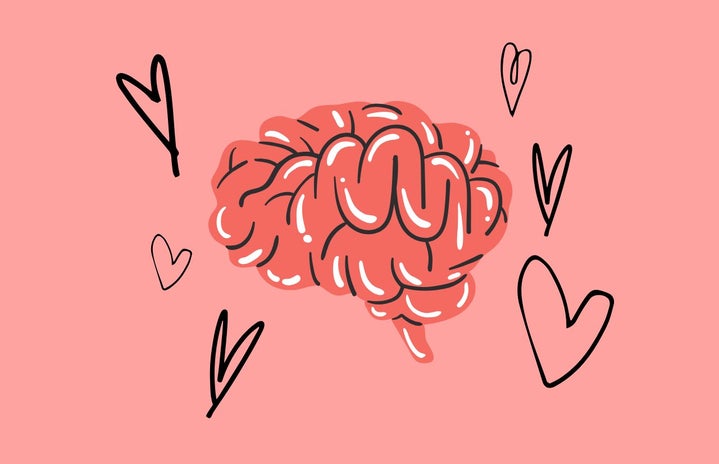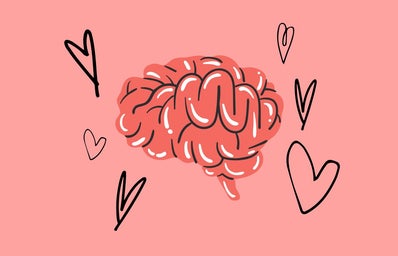ADHD (Attention Deficit Hyperactivity Disorder) is one of those topics that almost everyone has heard of – in fact, a quick Google search reveals a clear rise both in ADHD diagnosis and in the number of people seeking treatment for ADHD in recent years, particularly post-pandemic. However, ADHD is a complex topic, and is not something that should be taken lightly, nor can it be easily explained away by blaming social media for “ruining attention spans”.
ADHD is a complex neurodevelopmental disorder, and often involves a strong genetic component. While social media can exacerbate ADHD, it is unlikely to be the sole cause. The rise in ADHD cases is partly due to increased awareness and reduced stigma, as well as more accurate diagnostic criteria. That being said, ADHD remains a disorder that is frequently misunderstood, and is often misconstrued as a disorder that just affects children. Perhaps one of the most popular stereotypes is that of a young child – usually a boy – who is loud and disruptive in school. However, there are many ways in which ADHD can affect someone, and not everyone with ADHD will experience the same symptoms.
In fact, ADHD in girls or women is often misdiagnosed, or not recognised at all. ADHD often presents differently in girls and women than it does in boys and men, and therefore can go unnoticed by both those who may have the disorder, as well as their medical practitioners.
For example, women tend to show fewer classical hyperactivity symptoms than their male counterparts – instead of physical hyperactivity, many women may instead experience racing thoughts and an inability to quiet their mind. This can often be misdiagnosed as anxiety. While anxiety is often a co-morbidity of ADHD, missing out on an ADHD diagnosis can have serious consequences.
This is because ADHD can impact your life in more ways than you realise. This article will explain just a few symptoms that can be experienced by people with ADHD. However, it is important to remember that not everyone with ADHD will experience the same set of symptoms, and these symptoms may even be a result of something else. It is best to talk to a doctor if you suspect that you may have ADHD.
One of the most common symptoms of ADHD is executive dysfunction, which is commonly implicated in procrastination and task initiation – you know there is something that you need to do, or even something that you want to do, but you cannot get yourself to do it. It is easy to try and blame this on a “lack of discipline” or “laziness”, but for people with ADHD, executive dysfunction is not as simple as just not having discipline. The task that we are avoiding is often all we can think about, but we have trouble starting. It is almost as though there is an uncontrollable mental block preventing you from starting the task.
Executive dysfunction may feed into task avoidance, which is related to dopamine and reward-circuitry in our brains, particularly the dopamine-deficient brains of those with ADHD. When faced with a task that appears “boring” or otherwise not mentally stimulating enough, it becomes easier to avoid, as these tasks do not result in a strong release of dopamine, meaning there is no incentive to complete them. This can lead to avoiding tasks until it is almost too late – by this point, the urgency of a task usually results in the release of enough adrenaline that is needed to complete it. However, living like this can be exhausting, and can lead to feeling out of control in your own life.
However, executive dysfunction can have an impact beyond procrastination and task initiation. Many people struggle with impulsivity, another executive function that is impaired in ADHD. This can lead to poor decision making, or risky behaviour. These impulsive actions are also linked to dopamine signalling – a higher risk behaviour often carries a higher “reward”, or in this case, a dopamine release, which is exactly what an ADHD brain craves.
Forgetfulness is another symptom that many people with ADHD may experience. Although we may all know the feeling of walking into a room and forgetting why you needed to be there, people with ADHD experience these moments of forgetfulness far more frequently. This may look different for each individual, but many people with ADHD often forget where they have put something just moments after putting it down, or they may forget appointments or due dates. This is due to deficiencies in working memory in ADHD brains. Chronic forgetfulness is extremely frustrating, and can incur costs, both in terms of money and time – you may have to pay a fee for a missed appointment, or you may lose time every day looking for items that you have misplaced.
Possibly the most well-known symptom of ADHD is inattentiveness, or “zoning out”. An ADHD brain works differently to a neurotypical brain – this makes it difficult to stay focused when someone is talking, or when there is a task that needs to be completed. Someone with ADHD is far more likely to be distracted by noises or other stimuli in an environment than someone without ADHD. Additionally, those with ADHD may often find that something that is said in conversation may prompt them to start thinking about something related to what was said, which leads to other wandering thoughts, and can result in completely missing the rest of the conversation. This is not something deliberate, but rather just a result of divergent thinking, which is common in ADHD brains.
In some ways, this divergent thinking can be an asset, as it allows those with ADHD to come up with many creative ideas or link ideas that may otherwise have seemed unrelated, but it can also come with difficulties – organizing these ideas and finding the best solution is easier said than done for those with ADHD, and a lack of organisation and focus may mean that these ideas never come to fruition.
There are many more symptoms of ADHD, and every individual experiences these differently. However, it is clear that not receiving an ADHD diagnosis can mean that those who struggle with these symptoms cannot receive adequate assistance or treatment. Additionally, accurate diagnosis can help individuals understand themselves better and can even help to alleviate some of the guilt that is common in those with ADHD, particularly women. It takes a lot of mental effort to try and compensate for the ways in which you are struggling to keep up with those who do not have these issues, and it can seem as though you are never putting in enough effort, or as though you are not reaching your full potential. Women with ADHD also tend to present with strong perfectionistic and people-pleasing tendencies and may often take on a higher workload than is reasonable, as an attempt to cope with both societal expectations of women as well as to hide, or mask, their ADHD characteristics.
Treatment of ADHD is almost as complex as ADHD itself, and once again, varies amongst individuals. We are probably all familiar with the common stimulant medications used to treat ADHD and improve focus, such as Ritalin and Adderall (and their various generics), but there are other ways to manage ADHD that can be used in conjunction with these medications, or on their own. Individuals with ADHD may benefit from therapy or counselling, as well as accommodations, particularly for those who are still at school or university. Additionally, utilizing apps to help set reminders or to improve organisation and planning may also be helpful. What is important is that everyone with ADHD needs to find what works best for them – and there should be no judgement or stigma attached to whatever decision they make.
But ADHD doesn’t have to be something that limits you – it can be something beneficial! People with ADHD are often creative and innovative thinkers. Because ADHD brains see the world slightly differently to neurotypical brains, those with ADHD are often able to come up with new ideas that someone else may not have considered. Additionally, those with ADHD may have the ability to hyperfocus (although this sounds counterintuitive) on topics that interest them. This intense concentration can aid in completing tasks quickly and accurately and is an asset in many career fields.
Living with an ADHD brain can also mean that you are more adaptable and resilient – you do not let challenges set you back and are skilled at overcoming things that may be difficult. People with ADHD are also empathetic and intuitive, meaning they can easily relate to others, allowing them to be compassionate and considerate to those around them.
The rise in ADHD diagnosis and treatment, therefore, is not something that should be viewed as a negative. ADHD is a real disorder and can have severe impacts on the lives of those who live with it. Accurate diagnosis and treatment can help people not only understand themselves better, but also manage their symptoms better, therefore improving their overall happiness and quality of life. We should aim to embrace neurodiversity in our society, so that everyone is afforded an equal chance at success, and our unique skills can be utilised to their full potential.


